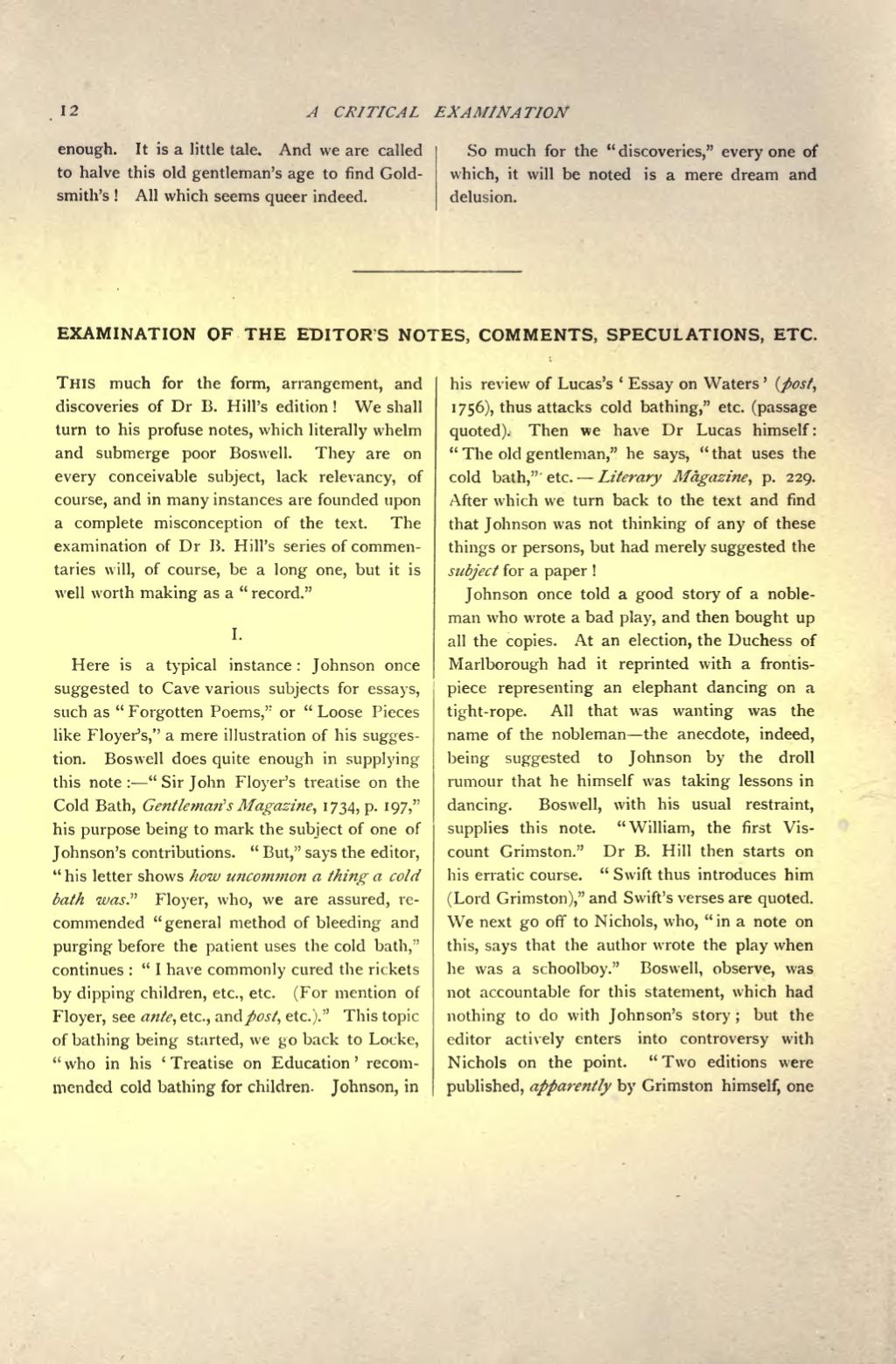enough. It is a little tale. And we are called to halve this old gentleman's age to find Gold smith's! All which seems queer indeed.
So much for the "discoveries," every one of which, it will be noted is a mere dream and delusion.
EXAMINATION OF THE EDITOR'S NOTES, COMMENTS, SPECULATIONS, ETC.
This much for the form, arrangement, and discoveries of Dr B. Hill's edition! We shall turn to his profuse notes, which literally whelm and submerge poor Boswell. They are on every conceivable subject, lack relevancy, of course, and in many instances are founded upon a complete misconception of the text. The examination of Dr B. Hill's series of commentaries will, of course, be a long one, but it is well worth making as a "record."
I.
Here is a typical instance: Johnson once suggested to Cave various subjects for essays, such as " Forgotten Poems," or " Loose Pieces like Flayer's," a mere illustration of his suggestion. Boswell does quite enough in supplying this note:—"Sir John Floyer's treatise on the Cold Bath, Gentleman's Magazine, 1734, p. 197," his purpose being to mark the subject of one of Johnson's contributions. "But," says the editor, "his letter shows how uncommon a thing a cold bath was." Floyer, who, we are assured, recommended "general method of bleeding and purging before the patient uses the cold bath," continues: "I have commonly cured the rickets by dipping children, etc., etc. (For mention of Floyer, see ante, etc., and post, etc.)." This topic of bathing being started, we go back to Locke, "who in his 'Treatise on Education' recommended cold bathing for children. Johnson, in his review of Lucas's 'Essay on Waters' (post, 1756), thus attacks cold bathing," etc. (passage quoted). Then we have Dr Lucas himself: "The old gentleman," he says, "that uses the cold bath," etc.—Literary Magazine, p. 229. After which we turn back to the text and find that Johnson was not thinking of any of these things or persons, but had merely suggested the subject for a paper!
Johnson once told a good story of a noble man who wrote a bad play, and then bought up all the copies. At an election, the Duchess of Marlborough had it reprinted with a frontispiece representing an elephant dancing on a tight-rope. All that was wanting was the name of the nobleman—the anecdote, indeed, being suggested to Johnson by the droll rumour that he himself was taking lessons in dancing. Boswell, with his usual restraint, supplies this note. "William, the first Viscount Grimston." Dr B. Hill then starts on his erratic course. "Swift thus introduces him (Lord Grimston)," and Swift's verses are quoted. We next go off to Nichols, who, "in a note on this, says that the author wrote the play when he was a schoolboy." Boswell, observe, was not accountable for this statement, which had nothing to do with Johnson's story; but the editor actively enters into controversy with Nichols on the point. " Two editions were published, apparently by Grimston himself, one
